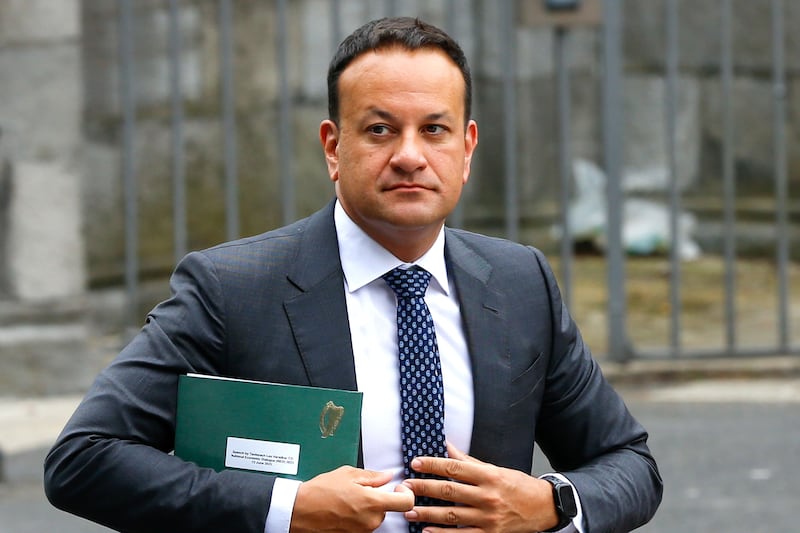We've had almost 22 months of DUP boycott and in the 10 months since the Windsor Framework there's been plenty of dithering and deflection, alongside a further deterioration in public services. There's a sense things are coming to a head but we've been here before.
We're led to believe that the secretary of state's invitation to the parties to discuss Stormont's financial stability is independent of the so-called negotiations that the British government has been having with the DUP since at least early summer.
It's never been clear how those discussions were conducted or what exactly their aim was, beyond creating a ladder for Sir Jeffrey Donaldson to climb down.
It would appear that process has effectively run its course and that it's 'make your mind up time' for the DUP. The irony of David Trimble's nemesis now facing a decision that may yet define his political career is lost on nobody. Sir Jeffrey has made it clear in recent months that he wants to get Stormont up and running again, regarding it as the best way to secure the union.
We can assume most of his Stormont team and his deputy leader, the comparatively moderate Gavin Robinson, are onside. But there are those – both internally and externally – who argue otherwise and see any form of compromise as a sell-out.
Having fashioned a rod for his own back, Sir Jeffrey must now try and dodge its most severe blows – the accusations of 'lundyism' and complicity in the apparent subjugation of the union.
Read more:
- British government denies claim that negotiations on Windsor Framework have concluded
- British government offers financial package to support return of Stormont Executive
The cash offer from the British government will help, but ultimately he must concede that his party's seven tests have not been met and that the border in the Irish Sea, albeit a largely frictionless one for goods staying in the north, isn't going anywhere. He needn't be entirely defeatist and can argue that the DUP will continue its campaign against the protocol in the assembly.
However, the Lagan Valley MP needs to call time on his party's boycott or risk an electoral backlash similar to that experienced by both the DUP and Sinn Féin four years ago. With a Westminster election looming any time, thoughts of a serious challenge on his own doorstep can never be far from his mind.
There's growing expectation of a breakthrough, but don't hold your breath. It's been suggested that if we don't have movement by the beginning of next week then the process will be parked until January.
What the British government is offering is far from a panacea though it at least enables the executive to start on a semi-sure footing. A barrow of cash to settle public sector pay disputes and a pledge to raise the 'fiscal floor', increasing the regional funding allocation, are positives that should be banked but arguably they're just big sticking plasters for a dysfunctional system that too often surrenders to parish pump politics and populism.
It's clear there are long-term problems with Stormont's sustainability, both politically and financially. The two are inter-linked but too often seen as separate; their success is also in the hands of the north's politicians rather than the two governments.
If we are to see the institutions restored in the coming days or weeks, there's a need for maturity on all sides and ultimately some tough decisions.
Last week's Nothern Ireland Affairs Committee report outlined a number of ways devolution could be stabilised in the future though for now Sinn Féin and the DUP want to maintain their veto. It's well past time the population's needs were put ahead of party political advantage.








